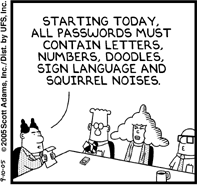I guess you shouldn't expect any tech company to provide anything "forever," as forever for them, and the fine prints, mean totally different things than what you and I think it is.
Squire1039
joined 1 year ago
239
ExpressVPN bug leaks DNS requests for Windows users with split tunneling:
(www.bleepingcomputer.com)
938
Apple Is Lobbying Against Right to Repair Six Months After Supporting Right to Repair
(www.404media.co)
I'll cry for Australia and Taiwan. I guess you can't remain in the first world forever. 🤷♂️ /s
There are some functions like that, like Passkey signing. For Bitlocker, the encryption/decryption key is transferred to the CPU (and RAM) in order for it to operate. The problem described here has been around for a while, but putting it on a key like that makes the attack method available to "everyone". There has been a solution for a while too: 1) put in pre-boot Bitlocker PIN, and 2) use integrated TPM like the article mentions.
Not disagreeing, but for the US:
- Yubikey 5c NFC costs ~30-55 USD. Not cheap.
- Yibikey BIO, with the scanner built in, will be even more expensive.
- Need a central registration authority or federated authorities to verify electronic ID. If the feds don't press the issue, this probably won't happen.
Yeah, I hate how the institutions now ask for endless information and IDs to identify you. It does look like asking for a copy of an ID is about to get worse.

"Hey! You look fresh!"